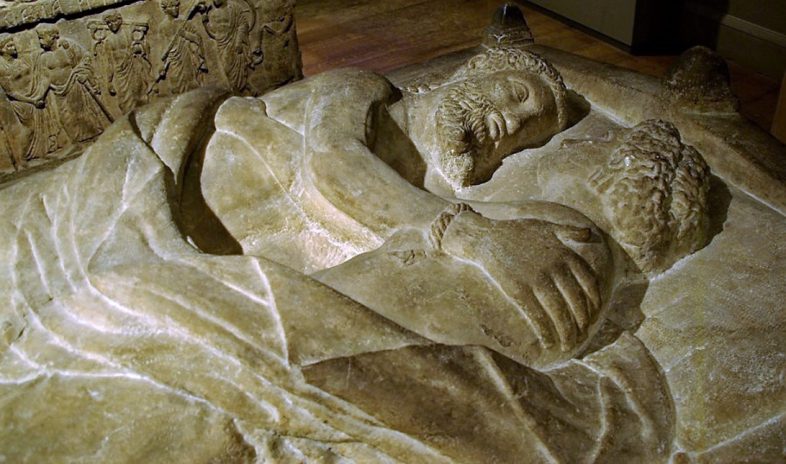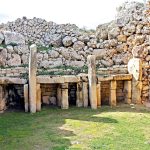25.05.2023
It may be clear that some called human beings “mortals” because they die. This noun is different from French mourir “die” but English has “mortal, mortality,” and “mortification”. Finnish for die is kuolla, Bulgarian umiran, Hindi marna, Italian morte and Ancient Arabic moat.
All the above express death but the causes are different. Finnish is a straight “kill,” but because kul means “eat, food” it was applied first to animals killed for food. Ancient Arabic expresses an almost philosophical state of death: eventuality. English die appears to be “an act”. It is given two vowels but it remains the biliteral root *D’, the hamza origin of do. English mortal, Bulgarian umiran and Hindi marna are extensions of the biliteral root *MR the main core meaning of which is “bitter” as applied to food unfit for human consumption. Those who consumed “bitter” or poisons food fell ill and some died.
*MR survives in daily use as a biliteral in Arabic mur (مُر) but it switches back to its standard ‘a’ pronunciation (mar) in the extension marīr “bitter, difficult, painful,” etc. A popular Dual Nuclei is marmar (مرمر *MR + *MR) used to express long-term pain, agony or harassment. The triliteral that reveals the state that may result in death is the triliteral maraṣ (مرص) “illness, sickness.” The triliteral, attested in Akkadian, was changed in Modern or Textual Arabic to maraḍ (مرض).
*MR is a secondary (invented later) biliteral root the primary (invented first) of which is *RM. Several core meanings for *RM are available to speakers including “throw away, devour any type of food,” etc. A good example is the English phrase inclusive of an extension of *RM: “I heard you rummaging around in the refrigerator.” If the refrigerator is removed along with the house and a Stone Age scene is imagined instead, the meaning may become very clear.
*RM and *MR are the two parts of a linguistic unit made of the primary and secondary biliteral roots. The combined semantic domains of the two roots fit perfectly. Hunger in ancient times was an annual recurrence brought by the killer Northern wind. Those were times when hungry people sought any food. A large number of our ancestors died of food poisoning before they were able to identify poisonous plants and avoid eating the flesh of dead animals.
DEATH
For the verb, die, a good collection in other languages is offered by OED including: Old French de “die, dice,” which is of uncertain origin. Cognates: Spanish, Portuguese, Italian dado, Provençal dat, Catalan dau.
There is uncertain about the origin. English “he’s done,” can mean “finish.” Do, did, done, died, etc. appear variants or extensions of *D’ “do, run, walk fast,” etc. A Dual Nuclei is Arabic *D’+*D’ (d’d’ دأدأ) “chase, follow, very fast running.” Ancient Arabic dā’ (دآء) is “ailment; disease; disorder; illness; malady; sickness.”
A great surprise for death is German tod. A much greater surprise is the primary of *D’, i.e. *’D, who is no less that our last great father Ad or Adam. The fate of the last known Adam is one of the greatest mysteries of the history of Homo Sapiens. Hunted down by the merciless ‛Aadites following the murder of their tribal leader, the last known Ad (Adam) fled from his tribal territories in today’s Sultanate of Oman, and took refuge in Southern Mesopotamia. A ‛Aadite army caught up with him and his party and he fled north. The incessant pursuit forced him to cross into Syria. From the small Syrian island of Irwād (إرواد)(Akkadian Arwada), it is claimed that he sailed to the Ionian islands of Greece. Because his body was never found and buried, his huge tribes refused to accept his death. A peculiar verb is left in Arabic proclaiming he will return coined from his own name: ‛ād (عاد) “returned,” and ‛wad (عود) “return, come back”. It is possible that the Mesopotamian concept of resurrection may have been promoted specifically for Ad. His eldest son Mur or Ṭy () should have been expected to be named Adam, after his father, in continuation of an ancient tradition but the circumstances of Adam’s disappearance and fate may have caused the suspension of the title of Adam. Mur became an important god, Marduk. His elevation to the rank of a deity may have been expected following on the footsteps of his father who became god Adad or Hadad.
Some of the meanings are similar to those found in Akkadian:
- daʾummatu: darkness
- du ‘ ‘ umiš: [Moral life → Feelings] in great darkness;
- duʾʾumiš: in great darkness;
The second and third entries are also in Lisan al-Arab: damis (دامس) “dense darkness,” prvodied to describe nighttime.
A short glossary of Akkadian entries on death and other points raised in this and related posts is this. The entries’ biliteral roots are in brackets:
marāṣu (*MR): to be sick; to be troublesome; to worry (v.i.); to displease s.o. (+eli) (Gtn) to be sickly (Š) to trouble, to make suffer, to hurt, to give a hard time:
- marṣu (*MR): sick; troublesome; sad, difficult, horrible, disagreeable, unpleasant, arduous, patient
- murṣu (*MR): [Human → Disease] a disease, an illness / sickness / ailment / complaint, an ache, a continuous pain
- šumruṣu (*MR): very ill, sick; painful
- ramû (*RM) : [Industry] 1) to throw, to cast, to fling; 2) fear, radiance, feeling: to cast over / invest someone with (+ accusative) / to inspire in someone; 3) dwelling: to pitch and occupy;
- râmu (*R’): 1) land …: to present to, to endow somebody = accusative
- ramû (*RM) : 1) parts of the body, clothing, foundations …: to slacken, to become loose / limp: flaccid, to give way, to ease off, to indulge; 2) knot, binding …: to release, to let go, to set free; 3): “to loosen ropes” = to move on, to release a lock, to overcome one’s inhibitions (?) / to feel free -doing- (?); 4) offerings, sins, guilt: to clear away / absolve / clean / forgive; 5): to give something up, to relinquish; 6): leave, to quit, to reject, to discard, to disregard, to dump, to throw away, to forsake, to to disband, to abandon, to repudiate, to divorce, to abnegate, to cast off, to dispose of, to give over, to lay off, to pack in, to renounce, to skip; 7): to set free / to let / allow (to do something); 8): bird: repeatedly lets droop its wings; 9).
- râmu (*R’): [Moral life → Feelings] G. to love; Gt. to love one another; D. to fawn, fondle (dog) Dt. to caress one another N. to be loved, caressed
- mâtu (*MT): G. to die Gtn. to die one after the other Š. to put to death, kill; to kill involuntarily
- mitgurtu (*MT): [Moral life → Will] agreement, mutual understanding
- mitḫurtu (*MT): 1) convergence, coincidence; 2) harmony; 3) celestial bodies: conjunction, opposition, of waters: joining
- tamāru (TM): to bury
- tamû (*TM): [Legal] G. to swear (by s.o., sth.: +acc., ina, ana, ina libbi); stat.: to swear; to be bewitched, cursed D. to swear; to bind s.o. by oath; to make s.o. swear Š. to make s.o. swear; stat.: to be sworn R. to swear mutually
- ēdumānu (*’D): single, solo, unaccompanied, lonely, solitary, isolated (?); See also: ēdānu-, ēdišši-, udē-, ēdiš, ēdānīu
- daʾummatu (*D’): gloom, darkness
- du ‘ ‘ umiš (*D’): [Moral life → Feelings] in great darkness;
- duʾʾumiš (*D’):in great darkness
Last modified: May 31, 2023



